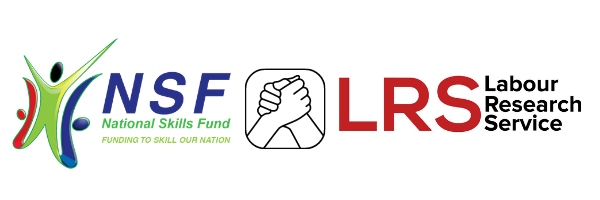In 2019, the Labour Research Service (LRS) collaborated with 29 worker leaders to develop a model Inclusive Collective Bargaining Agreement (ICBA) for the Negotiator’s Guide. Supported by the National Skills Fund (NSF), this initiative aims to address information and skills gaps in collective bargaining and foster informed social dialogue in South Africa. The worker leaders in the LRS peer learning process acknowledged the evolving challenges in organising and bargaining in the changing workplace.
We asked participants about key issues in their organisations. Shiyinduku Twala, a national negotiator at SADTU with decades of experience, shared his insights on trade union development in South Africa.
Do worker leaders have a good grasp of South Africa's labour laws?
We have regressed in our understanding of labour laws and our rights as workers, largely due to the nature of unionism in South Africa post-1994. When the ANC took power, many believed the new leadership would champion workers’ rights, leading to a relaxation in efforts to rigorously train shop stewards. Resources were diverted to other activities, leaving many worker leaders struggling to keep up. Shop stewards were not adequately informed about amendments to the Labour Relations Act (LRA) and the Basic Conditions of Employment Act (BCEA). The language of labour laws became more complex, making it difficult to understand without sufficient training. While existing judgments provided some guidance, not all shop stewards could easily access them due to a lack of organisational support for capacity building. This knowledge gap has allowed employers to exploit workers and undermine workplace representation.
What kind of support did you receive as a new worker leader?
I joined the trade union movement in 1987, during a time when educators and shop stewards received continuous training to effectively represent workers. This training built my confidence. Later, when I joined SADTU, I found a similar learning culture, but over time, the focus on training diminished. Fortunately, I had a strong foundation and continued to educate myself by reading, asking questions, consulting colleagues, and conducting research. However, I can’t claim to know everything. Some issues still elude me due to changing processes and contexts. For instance, I once argued a case at the Commission for Conciliation, Mediation and Arbitration (CCMA), only to learn from the Commissioner that the judgment I cited had been voided.
Shop stewards need to keep learning, interacting, and applying different perspectives. Young worker leaders should learn from their experienced counterparts. Listen, be patient, and be inquisitive. The most crucial thing is to read and research extensively to gain the confidence needed to represent workers effectively. Equally important is understanding your organisation’s culture, vision, mission, and objectives from the onset.
What needs to be done to grow and sustain worker organisations
If we can’t adapt, we won’t survive. Worker leaders must avoid divisive processes within our organisations. In today’s environment, there are many divergent views, so we must promote tolerance and inclusiveness. During LRS peer learning workshops, we discussed the importance of considering the needs of traditionally excluded workers in collective bargaining agendas. We identified key priority issues across 12 sectors and explored how existing laws, legislation, and conventions can help close the gaps. Therefore, we cannot afford to have ‘camps’ within our organisations. Our primary responsibility is to ensure all workers, both in formal and informal sectors, have decent work and are not left behind as the fourth industrial revolution progresses.
For trade unions in South Africa to achieve the growth they desperately seek, we must prioritise the movement’s needs over individual ambitions. One key to being a successful unionist is to support the majority-elected leadership while not being afraid to voice your views, even if not everyone agrees with you.
Do we need a different approach to the structure and governance of trade unions?
Most trade unions in South Africa still operate with a military-like structure focused on deployment and protocol, spanning sites, locals, branches, regions, and provinces. This traditional ‘trickle-down’ approach compromises the efficient flow of information. Today, workers have better and faster access to information. Some smaller unions have outpaced larger ones in information dissemination and governance. Consequently, some big unions are crumbling. If large unions continue using outdated methods, they cannot survive much longer. Our trade union’s organisational design must align with the current context. We need to embrace new ideas and be innovative. The concept of deployment in trade unions and the traditional organogram must change. Unions need to engage young, vibrant, and militant workers. Some degree of change is already happening, but more is needed for the future.
- Negotiator’s Guide
- Supporting collective bargaining for workers in precarious employment | LRS/NSF Peer Learning workshop 2








